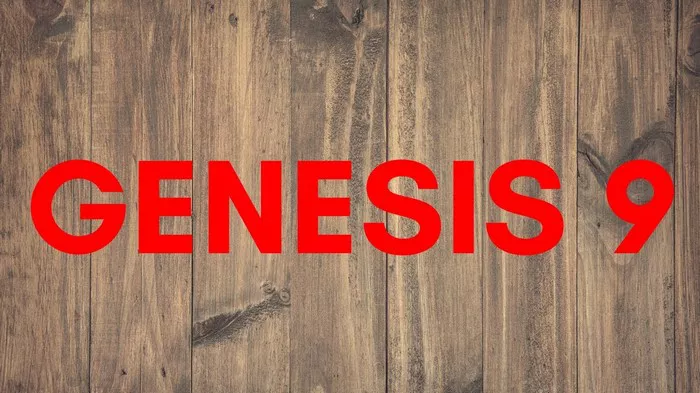Genesis Chapter 9 Summary
Genesis Chapter 9 marks a significant moment in the biblical narrative as God establishes a new covenant with Noah and his descendants after the Great Flood. The chapter begins with God blessing Noah and his sons, commanding them to be fruitful, multiply, and fill the earth. God grants humanity dominion over all living creatures and permits the consumption of meat, but with the prohibition against eating blood, which symbolizes life.
God then establishes His covenant with Noah, his descendants, and every living creature, promising never again to destroy the earth by floodwaters. The rainbow is set as the sign of this everlasting covenant between God and all living beings on the earth. This covenant underscores God’s mercy and faithfulness to His creation.
The chapter also includes the story of Noah’s vineyard, where he becomes drunk and lies uncovered in his tent. Ham, one of Noah’s sons, sees his father’s nakedness and tells his brothers, Shem and Japheth, who respectfully cover their father without looking at him. When Noah awakes and learns what Ham has done, he curses Ham’s son, Canaan, and blesses Shem and Japheth. This episode highlights the themes of respect, family honor, and the consequences of sinful behavior.
Bible Genesis Chapter 9
Welcome to read Genesis Chapter 9. Here is the list of Genesis Chapter 9:
What Does Genesis 9 Teach Us?
God’s Covenant with Humanity and Creation
Genesis 9 is foundational in understanding God’s covenant with humanity and all living creatures. The promise never to destroy the earth with a flood again demonstrates God’s mercy and faithfulness. The rainbow as a sign of this covenant reminds us of God’s ongoing relationship with creation and His commitment to preserving life. This teaches us about God’s grace and the assurance we have in His promises.
The Sanctity of Life
This chapter emphasizes the sanctity of life, as God commands Noah and his descendants not to consume blood, which is life itself. Additionally, the establishment of the principle that “whoever sheds human blood, by humans shall their blood be shed” reflects the seriousness of taking life, laying the groundwork for justice. This teaches us about the value of life and the importance of justice in maintaining order in society.
The Importance of Obedience and Respect
The story of Noah’s vineyard and the actions of his sons highlights the importance of obedience to God’s commands and respect within the family. Ham’s disrespectful behavior contrasts with the respectful actions of Shem and Japheth, leading to blessings and curses. This teaches us that our actions, especially within the family context, have consequences and that respect for authority and one another is crucial in God’s eyes.
The Universal Nature of God’s Promises
God’s covenant is not limited to Noah and his family but extends to all future generations and every living creature. This universal aspect of the covenant teaches us that God’s promises are inclusive and everlasting. It underscores the idea that God’s mercy and grace are available to all creation, not just a select few, reinforcing the concept of God’s care for the entire world.
The Role of Human Responsibility
In Genesis 9, God places new responsibilities on humanity, including the mandate to multiply, fill the earth, and exercise dominion over creation. This responsibility also includes the call to uphold justice, particularly in matters of life and death. This teaches us that while God is faithful in His promises, He also expects humanity to act responsibly in caring for the world and each other, highlighting the partnership between God and humanity in stewarding creation.
These five angles show that Genesis 9 teaches us about the depth of God’s covenantal love, the sanctity and justice of life, the significance of obedience and respect, the universal reach of God’s promises, and the responsibilities placed on humanity in response to God’s faithfulness. This chapter serves as a profound reminder of the relationship between God, humanity, and the world He has created.


